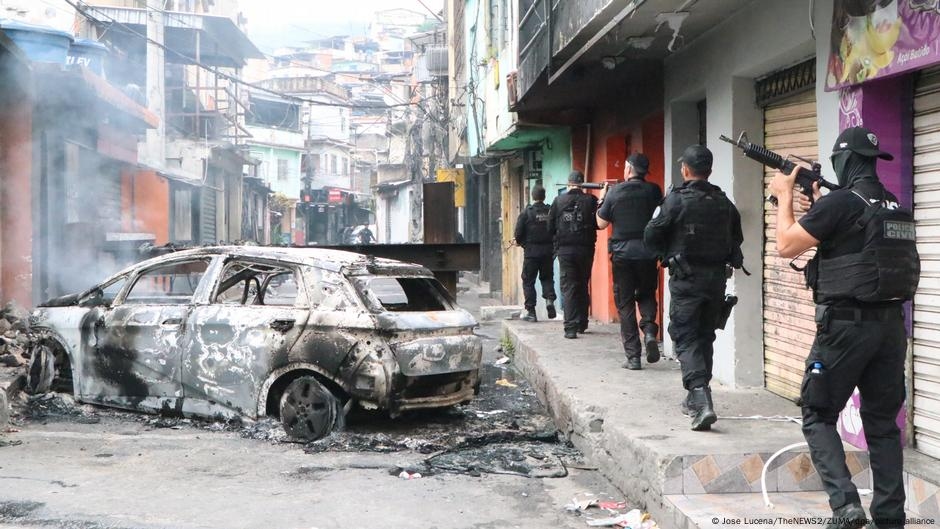More than 60 dead in police operation in Rio de Janeiro

According to media reports, it was the bloodiest police operation in the history of the state of the same name – with scenes reminiscent of a war film. Criminals dropped explosives from drones and shot at police officers.
At least 64 people, including four police officers, were killed in hours-long firefights between security forces and criminals in Rio de Janeiro. According to Brazilian media reports, it was the bloodiest operation in the history of the state of Rio de Janeiro on the Atlantic coast. Special units of the criminal and military police moved into the Alemão favela and the Penha district in the north of the Brazilian metropolis.
According to authorities, 81 suspected members of the Comando Vermelho (Red Command) have been arrested, including a regional leader and the financial chief of one of the top bosses. The criminal syndicate—one of the largest in the South American country—is primarily active in drug trafficking.
Civilians caught in the crossfireAt least 2,500 police officers were involved in the operation, which deployed two helicopters and dozens of armored vehicles. Over 90 automatic weapons and more than 200 kilograms of narcotics were seized. Videos show plumes of black smoke rising over the neighborhoods. Criminals set fire to barricades and cars, dropped explosives from drones, and fired on police. Three bystanders were also caught in the crossfire.

"We are acting together with all our strength to make it clear that power lies with the state," said the governor of the state of Rio de Janeiro, Cláudio Castro. At a press conference in the security forces' command center, he announced: "We will resolutely continue the fight against organized crime."
Bus routes diverted due to the fightingThe near-civil war conditions also impacted city life. Over 100 bus lines had to change their routes due to the fighting. Several universities and schools canceled classes. Approximately 280,000 people live in the affected neighborhoods. Rio de Janeiro's Security Minister, Victor Santos, told TV Globo: "We deeply regret that people were injured, but this is a necessary, intelligently planned measure that will continue."

Human Rights Watch described the police action as a "catastrophe." Amnesty International wrote: "No governor has the right to order a massacre of people." The Office of the United Nations High Commissioner for Human Rights called for an investigation and reminded the authorities in Rio "of their obligations under international law."
Brazil's Supreme Court also demanded an explanation from Governor Castro. Back in 2019, the judges had already severely restricted such operations in Rio de Janeiro's slums due to the high number of civilian casualties.
Governor Castro described this as counterproductive. The court ruling had significantly contributed to the spread of gangs in Rio de Janeiro.
Brazil's police kill 17 people a dayIn few other countries in the world do as many people die during police operations as in Brazil. In 2024, security forces there killed 6,243 people – an average of 17 people per day, according to the Public Security Yearbook.
For comparison: In the USA, police officers were responsible for the deaths of 1378 people last year, while in Germany 22 people were shot dead by the police.
However, police operations in Europe cannot be compared with those in Brazil: The operations in the winding alleys of the slums of Rio de Janeiro and São Paulo are more like military operations.
Many favelas are controlled by heavily armed drug gangs. When law enforcement officers enter these areas to execute an arrest warrant or search for drugs, they are often met with volleys of assault rifle fire.
jj/AR (dpa, afp, rtr, kna)
dw



